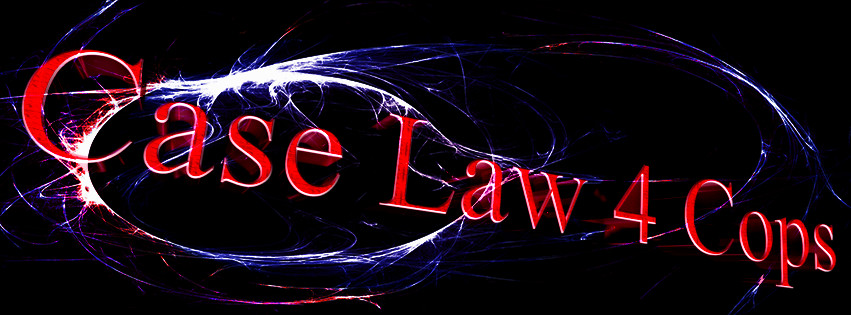Click on the case titles to link to the full case decision.
Wilson v. U S, 162 U.S. 613 (1896)-"...the true test of admissibility is that the confession is made freely, voluntarily and without compulsion or inducement of any sort."
Sorrells v. US, 287 U.S. 435 (1932)-Entrapment is, “When the criminal design originates, not with the accused, but is conceived in the mind of the government officers, and the accused is by persuasion, deceitful representation, or inducement lured into the commission of a criminal act, the government is estopped by sound public policy from prosecution therefor.”
Stein v. New York, 346 U.S. 156 (1953)-"The limits in any case depend upon a weighing of the circumstances of pressure against the power of resistance of the person confessing. What would U.S. 191, 198] be overpowering to the weak of will or mind might be utterly ineffective against an experienced criminal."
Lynumn v. Illinois, 372 US 528 (1963)-Lynumn was arrested for selling marijuana. The police coerced her into confessing. The police told her that if she did not cooperate, she would lose her state financial aid and custody of her children. Her confession was excluded.
Lewis v. US, 385 US 206 (1966)-The government use of an undercover officer who is invited into the defendant's home to conduct an illegal drug trade without a warrant was not in violation of the Fourth Amendment. The court further added:
-
The government can use decoys and undercover agents lawfully.
-
The defendant invited the undercover officer into the home.
-
The defendant allowed outsiders into is home to conduct illegal business.
-
The officer did not see, hear, or take any property that the invitee did not allow.
Frazier v. Cupp, 394 U.S. 731 (1969)-The defendant was questioned by police. During the questioning, the officer falsely told the defendant that his associate had already confessed. The defendant then made a confession. The court stated, "...The questioning was of short duration, and petitioner was a mature individual of normal intelligence. The fact that the police misrepresented the statements that Rawls [a co-defendant] had made is, while relevant, insufficient in our view to make this otherwise voluntary confession inadmissible." These cases must be decided by viewing the "totality of the circumstances."
Graves v. Beto, 424 F.2d 524 (5th Cir. 1970)-An officer deceives a rape suspect into giving a blood sample. The officer told him that the sample was to be used to determine drunkenness. The sample, however, was used for comparison with blood found at the rape scene. The court determined that the consent was not voluntary.
US v. Wright, 641 F.2d 602 (8th Cir. 1981)-Undercover officers knocked on Wright’s motel room door. They told Wright that they were having car trouble and asked to borrow some tools. Wright let them into the room. While inside, the officers saw white powder that they believed was methamphetamine and drug paraphernalia. They got a warrant for the room. The 8th Circuit Court reviewed the use of deception and determined that it was acceptable under the 4th Amendment.
Maryland v. Macon, 472 U.S. 463 (1985)-An undercover officer entered a business open to the public. He purchased two magazines that were later found to be obscene. The defendant moved to suppress the evidence claiming that the officer's entry was an unreasonable search in violation of the Fourth Amendment. The court ruled that the examination of any item displayed for public viewing in a private business does not constitute a "search".
Florida v. Cayward, 552 So.2d. 971 (Fla. App. 2 Dist. 1989)-False verbal statements to a defendant are one thing, but to create false tangible or documentary evidence is another. The fabrication of scientific documents establishing that semen stains found on the victim belonged to the defendant in order to induce a confession overstepped the bounds of fundamental fairness. The confession was excluded. It is beyond acceptable limits to manufacture evidence in order to elicit a confession.
United States v. Wagner, 884 F.2d 1090(8th Cir.)(1989)-A UPS delivery man and a police officer posing as a UPS employee were invited into the defendant's home to collect on a C.O.D. delivery. The officer smelled an odor he associated with the manufacture of methamphetamine. He left and got a search warrant. During the subsequent prosecution the defendant sought to have the warrant invalidated. He claimed that the officer's deception to gain entry to his home was an unreasonable search. The court ruled that "...one who consents to an undercover agent's entry into his house 'has no legally enforceable expectation that [the agent] is not an undercover officer.'"
US v. Giraldo, 743 f.supp.152 (E.D.N.Y. 1990)-Officers entered the residence of the defendant dressed as utility company employees. They told the defendant that they were investigating a gas leak. The court determined that the consent was involuntarily obtained. The officers presented a situation of apparent danger to the defendant. No reasonable person would refuse. Therefore the officers obtained consent through coercive means in violation of the 4th Amendment.
Redmond v. Commonwealth of Virginia, (Court of Appeals of Virginia, 2010)-The defendant, a convicted felon, listed his house with a real estate agent to sell. The police posed as prospective buyers and had the agent show them the house in hopes of finding firearms. The police found several firearms in plain view. They obtained a search warrant and searched the house. The defendant was charged with possessing a firearm after having been convicted of a felony. The court ruled that the deception by police was permissible. The defendant did not have any expectation of privacy when he listed his home for sale and knew the home was going to be shown to prospective buyers.
